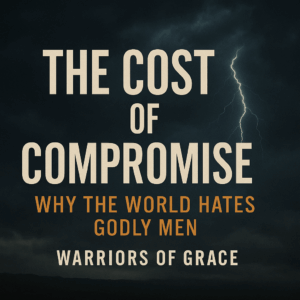⏱️ Estimated Reading Time: 5 min read
Most evenings, when we tuck our three-year-old son into bed, he requests that my wife and I sing “O Greatly Blessed” to him. Now, if you are scratching your head trying to remember a hymn or song entitled “O Greatly Blessed,” you are probably not alone, even though you have read the words in “O Greatly Blessed” numerous times. This is because “O Greatly Blessed” is Psalm 1 put to music (specifically to the tune “Arlington”).
My wife and I did not grow up singing psalms; in fact, it wasn’t until seminary that I learned that Christians had put the Psalms to music. But over a year ago, we were given a Psalter (specifically this one), and it is a great blessing to our family worship. And there are three reasons why singing psalms will bless your family as well.
You will sing Scripture.
Even the best hymns or worship songs are uninspired; they are man’s words about God’s Word. There are many hymns and songs I love, such as “O For a Thousand Tongues to Sing,” “In Christ Alone,” and “Be Thou My Vision.” But sometimes, even in the best of hymns or worship songs, phrases or words are lacking in theological precision. And there are even hymns or worship songs that are wrong, dangerous, or just sentimental fluff.
When we sing the Psalms, we do not worry about this. We know that the words we sing are true, infallible, and inerrant. We do not worry about the theology or the doctrine in the Psalms; they are God’s Word.
As a family, we want to fill our minds with God’s Word, and we want to form our minds according to God’s Word. This means that the truth which needs to fill my mind and the minds of my wife and children is God’s truth. We need to know that God is most high over all the earth (Psalm 83:18; Psalm 83C); God hears our prayers (Psalm 65:2; Psalm 65A); God justifies (Psalm 4:1; Psalm 4B), and God washes away our sins and purifies us (Psalm 51:2, 7; Psalm 51D).
But we also need to know about doctrines and truths not found in most hymns or contemporary songs: God defends us against our enemies (Psalm 43:1; Psalm 43B); God’s brings vengeance against the wicked (Psalm 94:1; Psalm 94A); God breaks the teeth of the ungodly (Psalm 3:7; Psalm 3). All of this is God’s truth found in God’s Word and is worthy to be sung.
You will memorize Scripture.
Another benefit of singing Psalms is that you will memorize Scripture. Some consider Scripture memory to be a difficult (and boring) discipline, full of note cards and rote repetition. But memorizing Scripture is among the most important activities that you can do. The apostle Paul makes the connection between the “word of Christ dwelling in you richly” and “singing psalms, hymns, and spiritual songs” (Col. 3:16). When you sing Scripture, it is easier to memorize. This allows God’s truth to dwell richly in you. Passages and verses you have memorized become points of meditation on God’s Word throughout the day. When you have memorized God’s Word, you can more easily bring it to mind to meditate on it “day and night” (Ps. 1:2).
Singing the Psalms enables your family to memorize long pieces of Scripture as a family. The Psalter I referenced above uses familiar hymn tunes, such as the tunes from “O for a Thousand Tongues to Sing” and “Amazing Grace.” As we have sung the Psalms in family worship to these tunes, I can no longer remember the words to the hymns because the words of the Psalms have replaced them!
Singing is a great mnemonic device; this is why in elementary school, everything is put in song. Children can easily memorize a song. Singing the Psalms gives all of your children the opportunity to fill their mind with Scripture, even if they cannot yet read!
You will form your children’s worldview.
Charlotte Mason, an educator in the 1800s, used a word I love: twaddle. Twaddle refers to less than worthwhile activities or items that do not challenge or edify the student. Most of the shows, books, and songs we encounter in our life are twaddle; they are really are a waste of time. But even these wastes of time are inculcating a worldview in your mind and the mind of your family. And songs are a major way this happens; think about the messages that even the most unobtrusive pop songs convey–selfishness, lust, greed. Do we want the ideas presented in these songs to fill and form our minds and the minds of our children? Obviously not.
We must fill our minds, not with worldview twaddle from Disney princess movies or the latest pop hits on the radio, but with the truth of Scripture. The Psalms provide an excellent way to do this. Songs are catchy and memorable; filling your family’s mind with the Psalms reinforces the Biblical worldview by making the truths stick. You will fill and form your family’s worldview biblically as you sing Psalms.
Sing the Psalms
My encouragement to all families is to buy a couple of Psalters and begin singing the Psalms in family worship. (And if you aren’t doing family worship, there are several good reasons why you should start.) Just like with personal Bible reading, or the preaching of God’s Word, in Psalm-singing, we have the beautiful promise that God’s Word “shall not return to me empty, but it shall accomplish that which I purpose” (Isa. 55:11). Singing God’s Word will never return empty, but instead will bring a great many blessings to your family.




